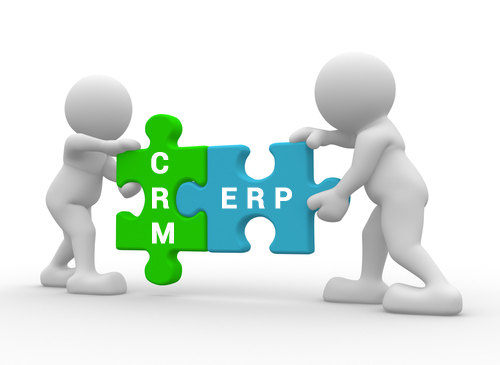Even the managers that have experience in Customer Service might not make the difference between CRM and ERP. It is important to make this difference, and to understand exactly what your company needs. The systems resemble, but they have totally different purposes. They are both systems that allow partitioning the information between employees, offering them reports about the activity.

The development of a company with the goal of increasing profits can be made in two ways: by increasing sales, and by lowering the costs. While the CRM systems have the goals of increasing sales, the ERP systems have the goal of controlling the expenses.
CRM characteristics
The majority of new businesses, especially startups are simple enough, so they don’t require an ERP program to manage processes. In this stage, it is a lot more important to contact the first clients, and to verify the business model that was adopted by managers. As long as the acquisition of new clients means increased costs even since the beginning, implementing a program that manages clients is justified. This system will centralize the data about marketing, sales and contract management, as well as clients support.
It is impossible to improve a process that is not measured. You can’t measure without recording. A good CRM system must help you to create new previsions, based on records and reports. Many CRM systems offer automatic features of marketing and sales, such as sending automated mail at a desired moment.
ERP characteristics
Once the company has reached a solid developing state, the method of cutting costs will also be important, but without renouncing or neglecting CRM. For a big company, it is easier to cut costs with 5% than it is to increase sales with 5%.
Another challenge for major companies is to increase the effectiveness of communication. Practically, as a result of a satisfaction report of clients obtained through CRM, the company decides that it is time to implement the ERP solution also.
The benefits of CRM can’t appear overnight
Prepare for this reality: the investment in a CRM is not profitable overnight. Prepare for a decreasing productivity of the employees on a short term, as they will be implied in the learning process. Training is important in this stage, even before the complete implementation of the system, and also feedback after the first week. On the other hand, quality training is not cheap, and even if it is provided by the implementation company, it will cost you extra.
The simple CRM solutions on demand (online) might be more efficient and they can be implemented with lower costs, but there are other opinions saying that the on site solutions are more complex. Choosing the right method is important, and the implementation specialists must give you the answer. The majority of small companies adopted the online solution, but from the perspective of costs and technical responsibilities, it is more efficient and simple. The management is spared of many decisions about the infrastructure, and this means that the solution is implemented faster. The online CRM solutions give a sentiment of simplicity and rapidity. The license management is also simple. If you move the entire infrastructure in online, you will get rid of stress.
If the online solutions are so great, why are they not used every time?
The online solutions are based on cloud technologies. This means that the security can be breached easier. The online solutions require small costs at the beginning, but later, when the client needs new modules, the costs will be bigger. The advantage of on-site CRM is that it has a solid structure from the start, which can be customized with minimum costs since the start.
As a conclusion, we can’t say which one of the CRM solutions is better, and the decision belongs to the manager of the client company.















